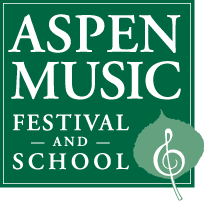« The view from the heartland | Main | Cruise Control »
July 24, 2006
The Best of All Possible Worlds
by Frank J. Oteri"There is at this moment of writing a serious hurdle ahead of...all music of an idiom later than the romantic nineteenth century. This is the hurdle into the regular symphonic repertory, so that the big works can be heard often and well played, and become at least as familiar as the Pines of Rome or the Heldenleben..."The more responsible conductors, who insist on a hearing for contemporary works, have tacitly agreed with orchestra managers on a quota system: the 'difficult' work they many introduce are limited to two, three, or four a year. Until the mid-forties no American conductor who by training and experience knew his own cultural tradition could get a job with a major symphony orchestra, so almost all the 'difficult" works chosen by the conductors of the major orchestras have not unnaturally been European ones.
"The demands of the Musicians' Union, which quite rightly insists on a living wage and a full season's work for its men, have had the unintented effect of crystallizing the personnel of the symphony orchestra to suit the requirements of the works most popular at the time the union contracts were first put into effect--the works of the popular nineteenth century big noise composers: Wagner, Tchaikovsky, Strauss, and so on. Orchestras find it so nearly impossible to make ends meet financially that demands for 'irregular' extra men--saxophone players, a fourth flute player, a fourth trumpet, a second pianist, or extra drummers...are a real threat to the budget. If a composer varies his instrumentation by keeping some of the men on stage idle temporarily, to the management it not unnaturally seems wasteful, since those men have to be paid for a whole evening's work anyway. Moreover, it is only the familiar works that fill the hall safely and surely. So managerial pressure will always be on the side of well-established kinds of music--which have the added virtue of being so familiar to the players that the require a minimum of rehearsal time."
The following words were penned more than half a century ago by Henry Cowell in the biography of Charles Ives he penned with his wife Sydney Cowell in 1955.
I agree with Barbara Jepson's assessment that all is not healthy at the moment for classical music despite classical music being far from dead. However, it seems like it's always been the worst of times for classical music and these times are better than any I can imagine.
I am a composer of new music based in New York City and the Editor of NewMusicBox, the Web magazine from the American Music Center which covers music being created all over the United States of America. And from my vantage point, exciting new music is everywhere if you keep your eyes and ears open for it. Although it always feels like there could and should be much more of it and that more attention should be paid to the music of American composers by the mainstream music industry, presenters, audiences, patrons, the media, etc. In the realm of classical music, while the music being created in our time by American composers as well as international new music might not be as front and center as a new music junkie would want it to be, the range of listening possibilities is staggering both in terms of live performances and recorded ones. That said, classical music does not often seem to connect to the general public. And much of the popular music that seems ubiquitous feels mindless, superficial, and destined for forgettability. Exploring deeper, however, reveals alternative streams of popular music as well which, though they seem marginalized, are as rich as the similarly seeming marginal stream of contemporary classical music. And there has never been a greater connectivity to the music of the whole world.
The erosion of a mainstream has made the concept of household name popularity seem like a distant pipedream. But technologies that have arisen in the wake of the mainstream, like the personal computer, the personal recording studio, and the internet have made self-publishing, self-producing, and the possibility of a global audience more of a reality for a larger number of people than ever before in human history. And this is probably why, despite a decline in music education among the general population, there are more active composers and performing musicians in 21st century America than in any other time or place in human history.
The worst of the above assessment sounds remarkably close to Cowell in 1955. It has after all always been the worst of times for classical music. The best of it however seems more hopeful than ever before.
Posted by foteri at July 24, 2006 04:14 AM
COMMENTS
Post a comment
Tell A Friend


